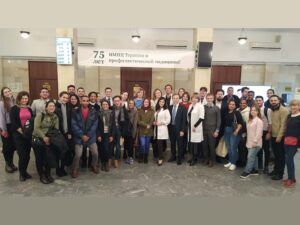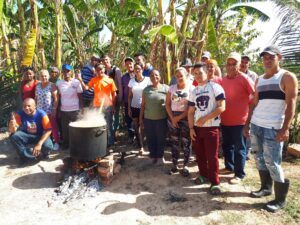Amid scarcity and high prices for available goods; blackouts, water shortages, accumulating rubbish, and countless other problems, many find it difficult to understand why our province earned the honour of hosting National Rebellion Day celebrations. It would be profoundly naïve to ignore this facet of our national – and consequently Avilanian – reality.
In a conversation among colleagues – clarified as journalists should analyse objectively – I asked one listener, brow furrowed, what benchmark of prosperity he recalled for the province. Faster than anticipated, he countered: «Before the COVID-19 pandemic, around 2019 or 2020.» Most would echo this if surveyed; some might add «as we were just before the Tarea Ordenamiento economic reforms.»
This benchmark stems from the abrupt erosion of purchasing power against depleted state markets and unrelenting inflation. Such context makes alternative perspectives challenging, especially when clinging to the long-held maxim that «results matter, not effort.»
We’d face similar dissonance comparing today to the 1980s – when the defunct Council for Mutual Economic Assistance (COMECON) and former Soviet Union guaranteed lives not of luxury, but greater comfort and equity.
But these cannot be our references. They blind us to the strenuous efforts underway to gradually overcome a crisis deepened by domestic inefficiencies, intensified US blockade, and an increasingly complex global situation – however ignored by many.
To comprehend, to share the pride in our province’s national recognition, we must examine the present: achievements secured month by month, week by week, day by day. Because within endless limitations – too numerous to list – a people rise each morning after blackout-ridden nights, often without breakfast (no cause for celebration), to revive industries, make fields «give birth,» and install solar panels in photovoltaic parks whose benefits remain unrealised.
Understanding requires visiting schools to witness teachers’ devotion – many sleep-deprived from sweltering nights – nurturing knowledge and sowing hope in every lesson. Or entering health institutions where, lacking basics like fever-reducing Dipyrone, physicians dig deep into why they became doctors, seeking to alleviate when curing proves impossible.
Understanding demands visiting enterprises like La Cuba Agricultural Enterprise – now yielding thousands of food tonnes after restoring lands that once exemplified productivity but literally turned to dust during multifactorial crises. Or if transport allows, travelling to Bolivia municipality to ask namesake Agroindustrial workers their wage levels, and residents how the company’s efficiency impacts their diets, particularly through alternative solutions.
One must delve into Party and Government systems to grasp how constituency sponsors operate; how diverse bodies compensate through Friday voluntary labour for what Communal Services cannot deliver amid equipment, fuel, and staffing deficits.
Attending vital services review meetings reveals efforts to minimise disruptions for citizens.
Yet some may still question the official announcement citing Ciego de Ávila’s selection because it «maintains stability in core economic, political and social tasks, aided by Party/Government coordination with the people, notably through active new-generation participation as continuity.»
This is entirely understandable. Until that stability is felt in people’s wallets, on their tables, in community hygiene, and health services… we must keep rethinking how we act and how we communicate.




